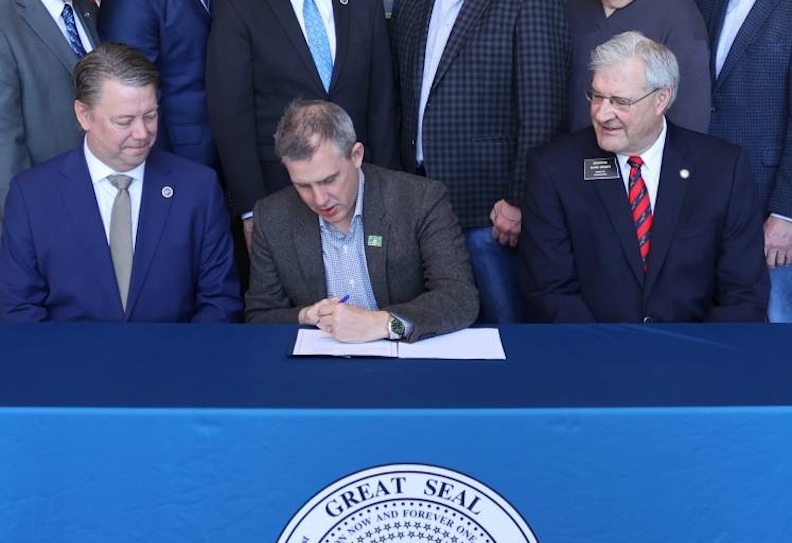North Dakota – Gov. Kelly Armstrong signed a landmark property tax relief and reform package into law this week, delivering what he called a “historic” and “unbelievably great” win for North Dakota residents. The legislation significantly increases property tax credits for homeowners and imposes new limits on local government spending growth.
The bill signing ceremony took place at the state Capitol, where Armstrong was joined by legislative leaders and sponsors of the bill. “This was an absolute team effort,” Armstrong said, emphasizing the bipartisan nature of the effort. “Everybody recognized that property tax relief was the No. 1 priority we had to accomplish this legislative session.”
House Bill 1176, which passed with overwhelming support — 86-4 in the House and unanimously 46-0 in the Senate — more than triples the current primary residence property tax credit from $500 to $1,600 per year. The expansion is set to provide an estimated $409 million in relief over the 2025-2027 biennium, funded by earnings from the state’s $12 billion Legacy Fund.
The bill also includes a key provision from Armstrong’s January State of the State address: a 3% cap on annual increases in local property tax budgets. This cap will apply to residential, commercial, and agricultural properties and is designed to encourage cities, counties, schools, and park districts to manage growth responsibly. The bill includes flexibility by allowing unused portions of the 3% cap to be carried forward for up to five years.
In addition to homeowner relief, the legislation expands the renter’s refund program and increases support for disabled veterans through a larger tax credit.
The measure was introduced by Rep. Mike Nathe and co-sponsored by a coalition of Republican leaders including House Majority Leader Mike Lefor, Senate Majority Leader David Hogue, and several other lawmakers from both chambers. “We’ve more than tripled the credit from what it was,” Nathe said. “It’s a sustainable program. And we are investing Legacy Fund dollars back into the people of North Dakota.”
Hogue praised the cooperation between legislative bodies. “It was a lot of back and forth, but at the end of the day, we came out with the right product for the people of North Dakota,” he said.
Before adjourning the 2025 session, the Legislature also passed a preliminary $6.25 billion general fund budget and a $20.3 billion total state budget for the next biennium — representing modest increases of 2.6% and 3.5%, respectively.
With this property tax relief package now in place, North Dakota homeowners are set to see direct and meaningful financial benefits in the years ahead.


